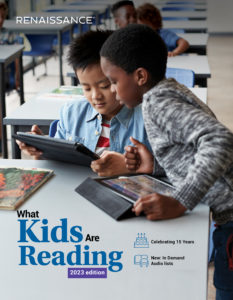Introducing Renaissance Fundamentals to uncover non-academic barriers to student learning and success
Renaissance is expanding its portfolio with a growing suite of non-academic assessments that proactively identify and address non-academic barriers to student learning and success. These products will help districts and schools assess and understand students’ non-academic behaviors and attitudes to learning, which is fundamental to supporting student learning, academic achievement, and well-being.
PASS, new to the Renaissance family as part of the GL Education acquisition, will be part of the new Renaissance Fundamentals suite. This K-12 universal screener helps uncover non-academic barriers to student learning, such as lack of confidence, motivation, and connectedness to school. Quick and easy to administer, students complete a survey in 15 minutes or less, responding to statements about how they feel about school and themselves as learners. The survey is based on nine factors focused on connectedness, self-efficacy, and motivation. The nine factors are:
- Feelings about school
- Perceived learning capability
- Self-regard as a learner
- Preparedness for learning
- Attitudes to teachers
- General work ethic
- Confidence in learning
- Attitudes to attendance
- Response to curriculum demands.
Dynamic, interactive reports are immediately available for educators, providing insights at the whole district and school level, by demographic group or cohort (grade, gender, ethnicity, English language learners, special education, free and reduced lunch, and up to two custom groups), and down to the individual student. The reports provide color-coded, actionable data that supports:
- School-wide program prioritization
- Group and individual student interventions
- MTSS and other whole child initiatives
- SEL program evaluation
- Diversity and inclusion efforts
An intervention guide is available with over 130 intervention strategies, based on the nine factors.
Watch this video to find out more about Renaissance Fundamentals.
Students respond to statements in the online survey like the statements on the screenshot below.
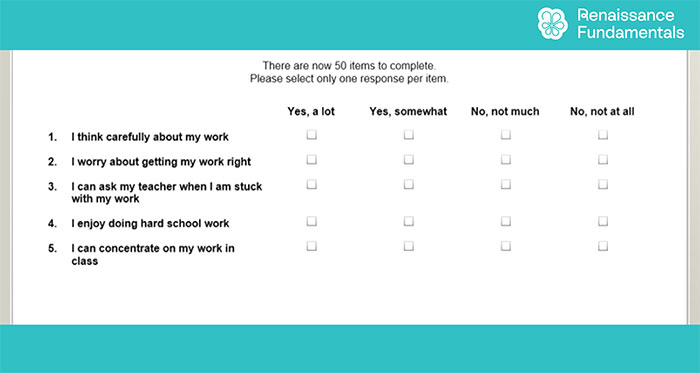
Reports are immediately available after students complete their surveys. The reports include actionable data at the district or school level, demographic group level, and individual student level.
School-level reports provide data by two scores: percentile scores (compared to a US standardized population) and percentage scores (reflecting survey results from the school alone, not including any comparisons with other schools.)
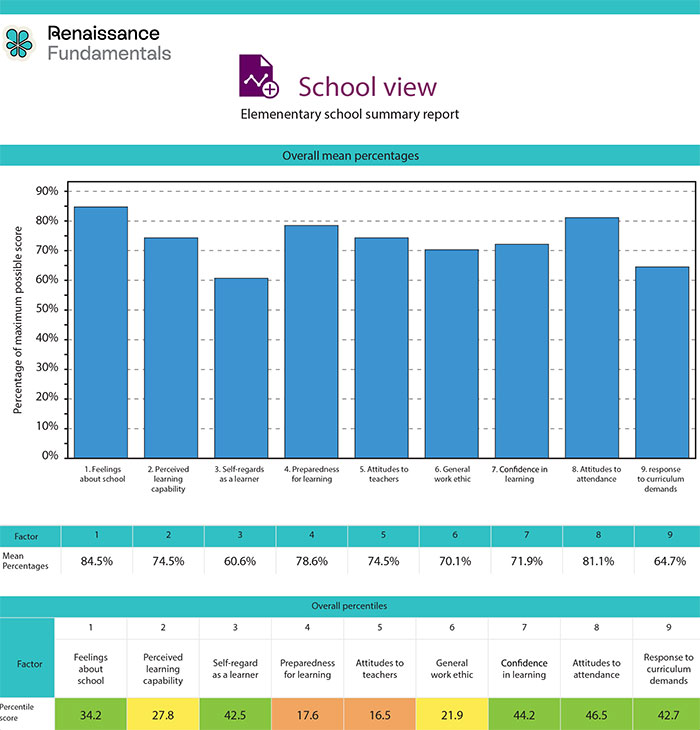
Demographic-level reports are available by gender, ethnicity, English language learners, special education, free and reduced lunch status, and up to two custom groups. The screenshot below shows a demographic report by grade and gender.
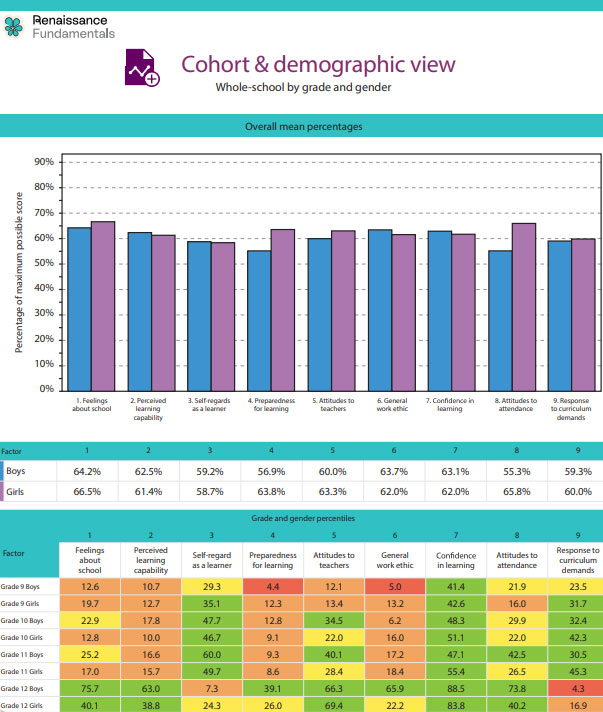
As shown in the screenshot below, color-coded individual student reports let educators quickly identify students struggling across the board, while also uncovering those occasional red or amber areas where a student may be struggling, which may be surprising. Renaissance Fundamentals data contextualizes a student’s academic performance, helping educators know when they need to address those barriers to learning, rather than or in addition to the instruction itself.
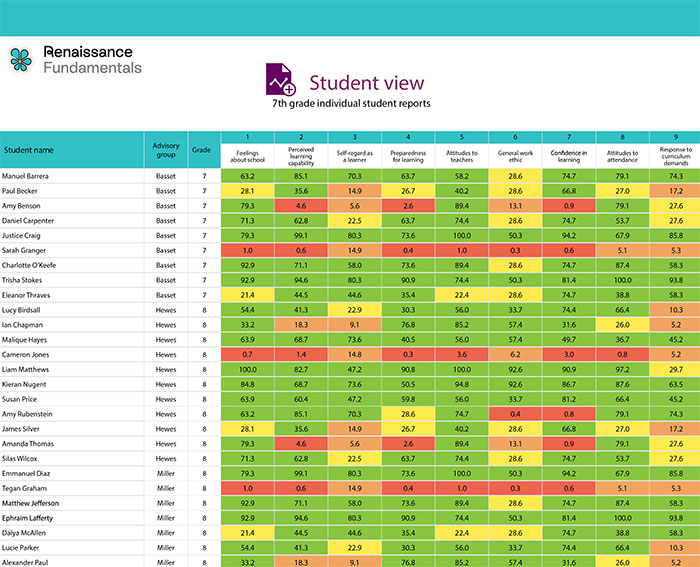
Click here to see more available reports and learn more about how Renaissance Fundamentals can help educators collect and analyze data to see every student.
